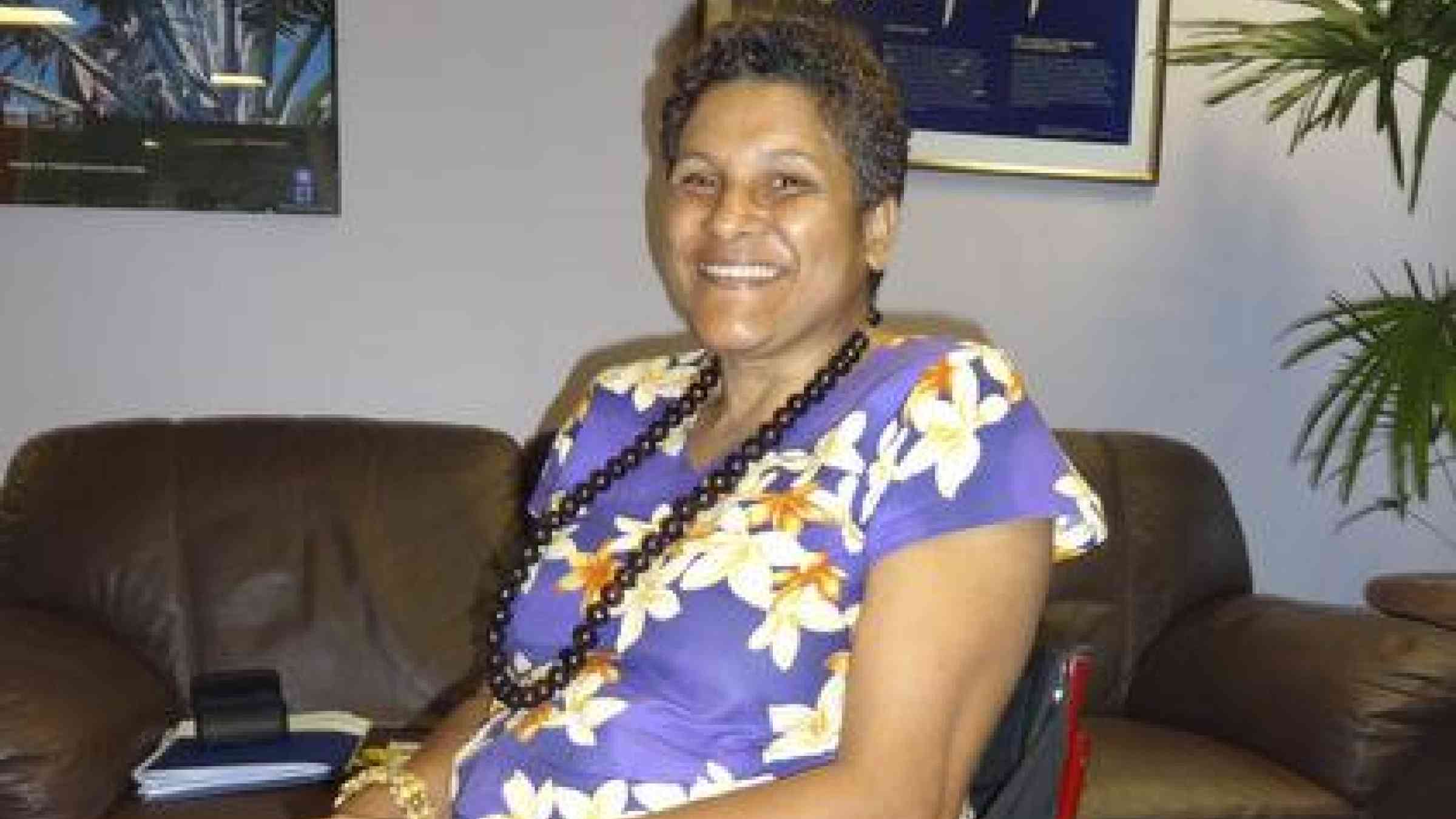UNISDR training puts DRR top of the news

FIJI, 22 October 2013 – A global initiative to increase coverage of disaster risk reduction issues in the media culminated last week in the Pacific.
ECHO and the UN Office for Disaster Risk Reduction (UNISDR) jointly organized the series of workshops, which has trained more than 100 journalists from 45 countries.
An intensive two-day forum in Suva, Fiji, was the final event of the series, which also included trainings in Lao PDR, Myanmar, Philippines, Tanzania, Tunisia, and Switzerland.
Ms Makereta Komai from the Pacific Islands News Association was one of the 10 reporters from the Pacific who explored how to cover disasters from different perspectives. In May, as part of the programme, Ms Komai covered the Global Platform on Disaster Risk Reduction in Geneva and wrote more than 20 articles during the four-day event.
“The media have fewer and fewer resources and are more and more constrained to work under heavy pressure. Here in Fiji, most of the journalists are not specialized but are required to cover all kinds of issues,” Ms Komai said.
“Coming to Geneva exposed me to the link between disaster risk reduction and climate change and gave me angles to stories that are relevant for us here in the Pacific.”
UNISDR facilitator Ms Brigitte Leoni is delighted with the impact of the programme: “Most of the reporters are still more interested in the response to disasters rather than the disaster risk reduction angle which is more complex and not so obvious.
“However, reporters such as Makereta are making a great contribution by providing evidence of the benefits of disaster risk reduction policies in their region; they need to be encouraged.”
Head of the UNISDR’s Pacific Office, based in Suva, Mr Timothy Wilcox, agrees: “Climate-related hazards, such as cyclones, floods and drought, are becoming more frequent and severe due to climate change and reporters are eager to know more about what can be done to reduce disaster impacts to better inform their audiences.”
The Pacific reporters appreciated meeting wheelchair user Ms Naomi Navoce from the Pacific Disability Forum who, during the 2009 floods in Fiji, was stranded for three nights without assistance. “People forgot me because they said they were not trained to help me,” she told the reporters.
The testimony struck CFL News’ Mr Vijay Narayan: “I will certainly raise awareness of the issue of disabled people and disasters in my coming reporting.”
In Africa, Mr David Owino, of the Kenya Broadcasting Corporation, who participated in a previous training, has now developed an African media network focusing on disaster risk reduction. In Asia, Darin Klong Ughaea from the Thai PBS is now presenting a weekly TV programme on the theme.
Several major media organisations sent participants to the training scheme, including Anatolia News Agency; Caracol Television, Colombia; Deutsche Welle; Domingo Newspaper, Mozambique; Itar Tass; Jakarta Post; Jordan Tiimes; NHK broadcaster, Japan; Philippine Daily Inquirer; Times of India; and TVN Canal 2 Panama.